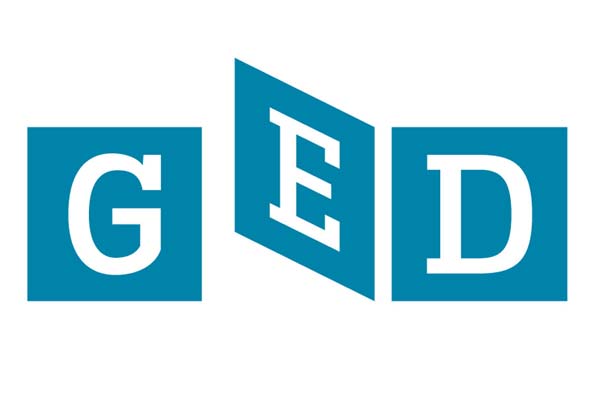IGCSE vs. GED: Which One is Right for You?
The choice between IGCSE and GED is essential for students seeking to continue their academic study beyond secondary education. While universities recognize both qualifications, they differ in their approach and requirements.
This article will explore the differences between IGCSE and GED and provide insights into which qualifications may suit different students.
International General Certificate of Secondary Education (IGCSE) is an English language-based qualification recognized in the UK as equivalent to the GCSE.
IGCSE, developed by Cambridge Assessment International Education, is a rigorous academic program covering many subjects. It is typically taken by students between the ages of 14 and 16 and is designed to prepare them for further academic study.
In contrast, the General Educational Development (GED) is a high school equivalency diploma in the USA designed for individuals who have yet to graduate from high school.
Understanding IGCSE and GED
The International General Certificate of Secondary Education (IGCSE) and General Educational Development (GED) are educational programs that serve other purposes.
IGCSE Overview
Definition and Curriculum
The IGCSE is an English language-based secondary qualification similar to the GCSE. It is recognized in the United Kingdom as being equivalent to the GCSE to identify prior attainment.
The IGCSE curriculum covers many subjects based on its precursor, GCSE. Still, it has been modified and adapted to serve the purpose of being internationally justifiable and meeting the local requirements. Exam boards such as Edexcel and Pearson Edexcel International GCSE offer the IGCSE.
Recognition and Global Acceptance
The IGCSE is recognized by universities and employers worldwide and is accepted as evidence of the ability to study at a higher level. It is a benchmark to show that a student has a foundation to study further and a symbol of achievement that shows that the student has the required knowledge to join the workplace.
GED Overview
Definition and Testing Areas
The GED tests are four academic subject tests measuring proficiency in science, social studies, math, and language arts. Passing these tests certifies individuals with US or Canadian high school-level skills, providing a high school equivalency credential for those who didn’t complete high school or meet graduation requirements.
🌟 Hey Students! 🚀 Ready for the ultimate experience? Join us on Studentsinside.com's Facebook, YouTube, WhatsApp, and LinkedIn. Click now for tips, fun, and success vibes! 🌈✨ #StudentLife #JoinUs
Recognition and Career Opportunities
Universities and employers in the United States and Canada recognize the GED. It is accepted as evidence of the ability to study at a higher level or apply for jobs requiring a high school diploma. It provides career opportunities for those who do not have a high school diploma and can help them earn higher wages and pursue further education.
Pros and Cons
When deciding between the IGCSE and GED, weighing each option’s advantages and disadvantages is crucial. Here are some pros and cons to consider:
IGCSE Advantages
- Internationally Recognized: The IGCSE is recognized by universities and employers worldwide, making it a valuable qualification for students who plan to study or work abroad.
- Comprehensive Curriculum: The IGCSE curriculum covers many subjects, including math, science, English, languages, and more. This provides students with a well-rounded education and prepares them for higher education.
- Smooth Transition to Higher Education: The IGCSE prepares students for higher education, providing them with the skills and knowledge they need to succeed in college or university.
IGCSE Limitations
- Limited Availability: The IGCSE is unavailable in all countries, which may limit its accessibility for some students.
- Potential Costs: The IGCSE can be expensive, especially for students who must travel to take the exams or require additional tutoring.
GED Advantages
- Flexible Testing Options: The GED offers flexible testing options, allowing students to take the exams at their own pace and schedule.
- Alternative to High School Diploma: The GED provides an alternative to the traditional high school diploma, allowing students who did not complete high school to earn a recognized qualification.
- Faster Completion for Adults: The GED can be completed more quickly than a traditional high school diploma, making it a popular option for adults who need to enter the workforce or pursue higher education quickly.
GED Limitations
- Scope of Knowledge Covered: The GED covers a limited scope of knowledge, focusing primarily on math, science, English, and social studies. This may provide students with a different level of preparation for higher education than the IGCSE.
- Perceptions in the Job Market: Some employers may view the GED as less valuable than a traditional high school diploma, which could limit job opportunities for GED holders.
Comparing IGCSE and GED
When comparing IGCSE and GED, there are several differences to consider. Here are some of the critical factors that distinguish the two qualifications.
Target Audience and Eligibility
The IGCSE is primarily aimed at students aged 14 to 16, while the GED is designed for individuals who did not complete high school and are over 16. Therefore, the target audience for these qualifications is quite different.
Content and Knowledge Scope
The IGCSE covers various subjects, including math, English, sciences, language arts, and social studies. In contrast, the GED tests four subjects: math, science, social studies, and language arts. The IGCSE has a broader and more in-depth knowledge scope than the GED.
Purpose and End Goals
The IGCSE is a secondary school qualification that prepares students for further education, such as A-levels or the International Baccalaureate. Conversely, the GED is designed to provide individuals with a high school equivalency certificate that can be used for employment or further education.
Recognition by Educational Institutions
The IGCSE is recognized by many schools and universities worldwide, particularly in the UK and Commonwealth countries. The GED is recognized by some colleges and universities in the US, but it may only be accepted by some institutions.
International Acceptance and Mobility
The IGCSE is an internationally recognized qualification widely accepted by schools and universities worldwide. While recognized in some countries, the GED may only be accepted in some countries.
Assessment
The IGCSE is assessed through exams and coursework, while the GED is assessed through tests. The IGCSE exams are typically more challenging than the GED ones, requiring higher knowledge and understanding.
Choosing Between IGCSE and GED
When choosing between IGCSE and GED, there are several factors to consider. This section will provide advice for different scenarios and discuss career and further education prospects.
Factors to Consider
Educational Goals and Aspirations
One of the first things to consider when choosing between IGCSE and GED is your educational goals and aspirations. IGCSE may be the better option for pursuing further education, such as attending university. IGCSE is recognized by many universities worldwide and can provide a solid foundation for pre-university education.
On the other hand, if you are not planning to pursue further education, then GED may be a better option. GED is designed for people who want to obtain a high school equivalency certificate, and it can be an excellent option for those who wish to enter the workforce or pursue vocational training.
Age and Time Constraints
Another factor to consider when choosing between IGCSE and GED is your age and time constraints. IGCSE may be a better option if you are 16 or younger. IGCSE is designed for students aged 14-16, and it can provide a comprehensive education that prepares students for further study.
GED may be a better option if you are an adult learner or have time constraints. GED is designed for people who still need to complete high school and want to obtain an equivalency certificate. It can be completed in a shorter time than IGCSE and can be an excellent option for those who need to balance work and education.
Geographical Location
Geographical location is a factor in choosing between IGCSE and GED. IGCSE is widely recognized worldwide, while GED is mainly recognized in the United States and Canada.
Career and Further Education Prospects
Both IGCSE and GED can offer benefits for career and further education prospects. IGCSE can provide a solid foundation for pre-university education and can prepare students for further study. GED can provide a high school equivalency certificate, which can be a requirement for some jobs and vocational training programs.
Advice for Different Scenarios
Private Schools, State Schools, and Independent Schools
If you are attending a private or independent school, you can choose between IGCSE and GED. It is essential to consider your educational goals and aspirations, as well as your age and time constraints.
IGCSE may be the better option if you plan to pursue further education. GED may be a better option if you are an adult learner or have time constraints.
If you are attending a state school, you may need the option to choose between IGCSE and GED. In this case, speaking with your guidance counselor or school administrator is crucial to determining the best action.
Universities and Employers
If you plan to attend university or enter the workforce, consider the recognition of IGCSE and GED. Many universities and educational institutions worldwide recognize IGCSE, while GED is primarily recognized in the United States and Canada.
When it comes to employers, both IGCSE and GED can offer benefits. GED can provide a high school equivalency certificate, which can be a requirement for some jobs and vocational training programs. IGCSE can offer a comprehensive education that prepares students for further study.
Further Education and Oxford AQA
If you plan to pursue further education, such as attending university, consider the recognition of IGCSE and GED. Many universities and educational institutions worldwide recognize IGCSE, while GED is primarily recognized in the United States and Canada.
Oxford AQA provides IGCSE qualifications, offering a range of subjects that can be studied in schools worldwide. If you want further education, consider an IGCSE qualification from Oxford AQA.
Department of Education and Recognition
The Department of Education recognizes IGCSE and GED in the United States and Canada. It is essential to check with your local Department of Education to determine the recognition of IGCSE and GED in your area.
Workforce and Pre-University Education
Regarding the workforce and pre-university education, IGCSE and GED can offer benefits. GED can provide a high school equivalency certificate, which can be a requirement for some jobs and vocational training programs. IGCSE can provide a comprehensive education that prepares students for further study.
16 Years Old and A-Levels
If you are 16 or younger and interested in pursuing higher education, consider taking A-Levels. A-Levels are advanced-level qualifications that are recognized by universities and colleges worldwide. They are typically taken by students in the UK and other Commonwealth countries and can provide a strong foundation for further study in various fields.
However, it is essential to note that A-Levels require significant time and effort and may not be the best option for everyone. Researching and considering all available options is essential before deciding on your education.
Frequently Asked Questions (FAQs)
Students and parents considering their options for secondary education may have questions about the differences between IGCSE and GED. Here are some frequently asked questions and their answers:
- What is the difference between IGCSE and GED? IGCSE is an internationally recognized qualification that is equivalent to the GCSE in the UK. It is typically taken by students in Year 10 and Year 11 as part of the National Curriculum. On the other hand, GED is a high school equivalency exam taken by students who still need to complete high school. It is not a replacement for a high school diploma or an IGCSE.
- Can I take IGCSE or GED exams online? Yes, IGCSE and GED exams can be taken online, but online exams may have specific requirements and restrictions. Students should consult their exam provider for more details.
- How do I prepare for IGCSE or GED exams? Many resources are available to help students prepare for these exams, including study guides, practice tests, and tutoring services. Students should also check with their school or exam provider for recommended study materials.
- What subjects can I take with IGCSE or GED? IGCSE offers many subjects, including English Literature, Mathematics, Science, and others. GED covers four subject areas: Reasoning Through Language Arts, Mathematical Reasoning, Science, and Social Studies.
- How are IGCSE and GED exams graded? IGCSE exams are graded from A* to G, with A* being the highest grade. GED exams are scored on a scale of 100 to 200, with a passing score of 145 or higher.
- What are the grade boundaries for IGCSE and GED exams? Grade boundaries for IGCSE exams vary by subject and are set by the exam board. GED does not have grade boundaries, as it is a pass/fail exam.
- Can I use IGCSE or GED to get into college? Yes, both IGCSE and GED can be used to apply to colleges and universities. However, it is essential to note that some colleges may have specific requirements for admission, and students should check with their chosen college or university for more information.
Overall, IGCSE and GED are two different options for secondary education that can lead to different outcomes. Students and parents should carefully consider their options and research their chosen exam provider before deciding.








